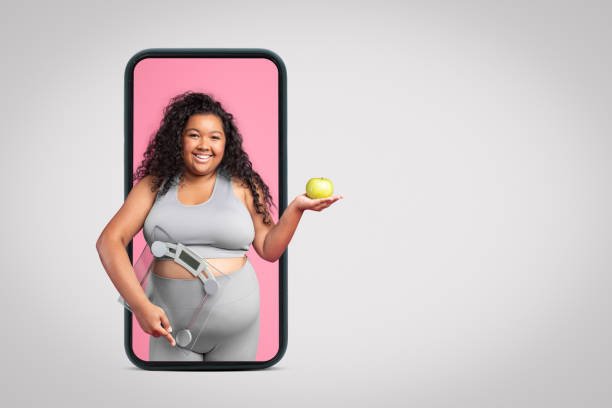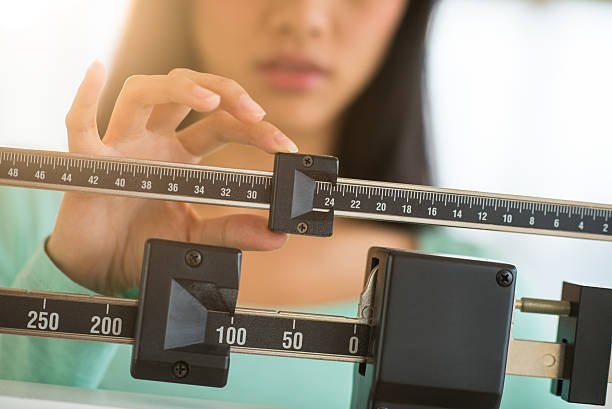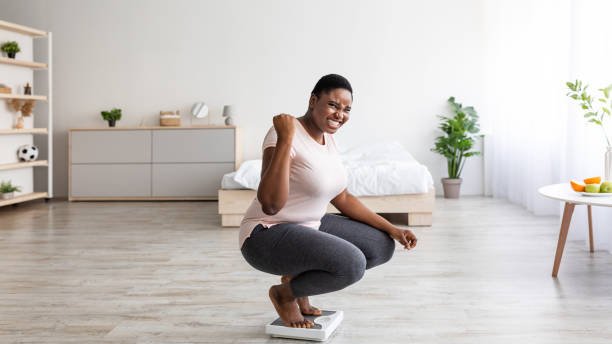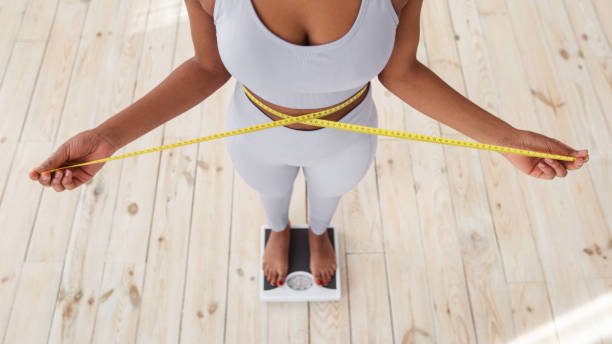
The 5 most important factors for determining your ideal weight for your height, age and gender
This frequent question, “how much should I weigh?” is asked by many people. They flip through endless charts and calculators trying to find that magic number – our “ideal weight”. But behind those charts is a reality far more complex than a simple number on a scale. It’s about how each of us uniquely embodies health and vigor.

Let’s start with body mass index (BMI) – it’s a term that gets tossed around like a salad at a wellness seminar, but what does it really mean? Age, another piece of this multi-layered puzzle, affects us in subtle but profound ways. Did you know that as we age, the rules of the weight game change?
And then there are gender differences. Yes, it’s a tale as old as time, affecting not only how we look, but the very fabric of our bodies. Speaking of tissue, have you ever thought about the intricate tapestry your fat-to-muscle ratio weaves? It’s a body composition analysis that lifts the curtain to reveal what lurks beneath the surface.
The height to waist ratio is not to be overlooked either. Tall, petite, or somewhere in between, this golden nugget can provide clues as to how weight is related to height. And, as if we’re not unique enough, there’s the “X factor” – genetic and environmental factors that play like a deck of cards shuffled by nature and nurture.
So, join us as we take a look at these 5 critical factors that will set you on the path to your ideal weight, tailored just for your unique self. No empty statements – just pure, personalized enlightenment. Ready to take the leap?
Understanding Body Mass Index (BMI)
Understanding body mass index (BMI)
So let’s talk about body mass index (BMI). It’s not just another fancy math riddle; it’s a pragmatic approach to assessing how much your weight differs from what is generally considered healthy for your height. Calculated by dividing your weight in pounds by the square of your height in inches (lbs/in²), BMI gives you a numerical idea of your size. For example, with a BMI between 25 and 29.9, you are generally categorized as overweight.

But here’s the catch: BMI can be a bit of a blunt instrument. It doesn’t distinguish between fat and muscle, which means that the same BMI can be for an athlete and someone who’s never been to the gym. This is why it is a starting point and not a definitive indicator of health. Yes, it is valuable, but when combined with other metrics such as body composition analysis or height to waist ratio, it completes the picture. Remember that these numbers are tools, not judges. Use them to guide your path to health and don’t get lost in the numbers.
Now let’s create a table of numbers:
| Parameter | Significance |
|---|---|
| Weight (lbs) | 154 |
| Height (inches) | 70 |
| BMI | ≈ 22.14 |
| Category | Normal weight |
The role of age in determining your ideal weight

It is undeniable that as we age, our bodies undergo a kaleidoscope of changes. Metabolism, that insidious beast, slows down, which means we can no longer gorge ourselves on pizza like we did when we were teenagers. And it’s not just the speed at which we burn calories. With age comes a change in body composition – muscle mass tends to say “see you later!” and fat decides to throw a permanent house party. So when we talk about ideal weight, it all depends on context. The number that was your so-called “ideal” in your 20s may not be the same at all when you’re 50. And it’s not just about aesthetics, it’s also about health. Muscle mass isn’t just for showing off, it’s vital for metabolism and bone strength. That’s why going to the gym or living an active lifestyle becomes even more important as you put more candles on your birthday cake. Remember when we talked about body mass index? It’s a useful tool, but without taking age into account, it’s like a map with missing pieces – not really useful.
| Parameter | Significance |
|---|---|
| Age | 20 years |
| Ideal weight at 20 years old | 143 lbs. |
| Age | 50 years |
| Ideal weight at 50 | 154 lbs. |
| Metabolism | It slows down with age |
| Change in body composition | Muscle mass decreases and adipose tissue increases |
| Health | It is important to maintain muscle mass to keep your health and metabolism healthy |
Эта таблица представляет значения возраста и идеального веса в американских единицах измерения, а также описывает изменения состава тела с возрастом и их влияние на здоровье.
Gender differences in body composition
Have you ever noticed that a man and a woman of the same height and weight can look completely different? **This is because gender significantly affects muscle mass, fat distribution, and what is considered “ideal weight. “* Women tend to have a higher percentage of body fat than men. This is not a disadvantage, but a biological trait. Men tend to have more muscle mass, so they may weigh more but not look “heavier”. Take athletes for example: a woman and a man can be in great physical shape, but their physiques will not mirror each other, nor will their ideal weight.

| Women | Men | |
|---|---|---|
| Gender differences in body composition | ||
| Percentage of body fat | 30% | |
| Muscle mass | 154 lbs. | |
| Weight and height | ||
| Weight | 143 lbs. | 176 lbs. |
| Growth | 67 inches. | 71 inches. |
| Body composition analysis | ||
| Fat mass | 42.9 lbs. | 52.9 lbs. |
| Muscle mass | 100 lbs. | 123.2 lbs. |
This is important because when determining ideal weight, one size just doesn’t fit all. Gender biological differences require individualized weight targets. So, if a woman compares her weight to a man’s scale, she’s not just on a different page, she’s in a completely different book. It is these nuances that are taken into account in a comprehensive body composition analysis, allowing for a clearer picture of what the “ideal” weight really means for each gender.
Know the Body Composition Analysis to know how much I should weigh
Body Composition Analysis
When it comes to determining your ideal weight, restricting yourself to just the number on the scale is unlikely to tell you the whole story. This is where body composition analysis comes to the rescue, providing a more complete picture by measuring the percentage of fat, muscle, bone, and water in your body. One popular method is using calipers to measure skin folds; they may feel a bit like crabs that like to pinch themselves, but they are quite effective at estimating body fat percentage. Then there’s bioelectrical impedance analysis (BIA) – not to sound fancy, but this gadget sends tiny electrical currents through your body to assess its composition. And believe me, it’s not so much a “mad scientist’s experiment” as it is a “clever technique”.
Nevertheless, these methods are not flawless. Hydration, meal timing, and even the skill of the person wielding the measuring device can affect the readings. While the BIA tends to be more user-friendly, it is also not the gold standard. Consider these tools as part of a larger puzzle that, when combined with factors of age, gender and genetics, will help sketch out your unique physical tapestry.
Height-to-waist ratio and its importance
When we talk about how to determine if our weight matches our height, most of us first think of BMI. However, the height to waist ratio is a rock star that is often overlooked in this health group. This small number can be a loud and clear indicator of weight-related health risks, such as cardiovascular problems and type 2 diabetes. Why is this the case? Because too much torso volume relative to your height can mean more visceral fat – the sneaky fat that hides around your organs. And we’re not talking about a cute beer belly, we’re talking about your body sounding the alarm about potential health problems.

Here’s a chart that reflects the basic ideas about height to waist ratio for assessing health:
| Parameter | Significance |
|---|---|
| Height to waist ratio | |
| Recommended ratio | Your waist should be less than half your height |
| Example | At 6 feet tall (about 72 inches), the waist should ideally not exceed 36 inches |
| Significance | A large waist circumference relative to height may indicate visceral fat, which can increase the risk of cardiovascular disease and type 2 diabetes |
| Health | Maintaining a proper height-to-waist ratio promotes overall health and reduces the risk of developing diseases |
Health Maintaining the right height-to-waist ratio promotes overall health and reduces the risk of developing diseases To put it in perspective, a waist circumference of less than half your height is considered to be a thumbs-up. So, if your height is six feet, your waist should ideally be no more than 36 inches. It’s not just about fitting into skinny jeans, but also about staying healthy for the rest of your life. Moreover, analyzing your body composition helps clarify that the numbers on your tape measure signify your fitness level.
Take genetic and environmental factors into account
Let’s get right to the point: genetics and environmental factors play a huge role in the weight game. You may follow the same diet and exercise regimen as your friend, but your bodies may react differently. Have you ever wondered why? It’s in the genes, my friend. We’ve all heard stories of those who can eat hamburgers every day and not gain an ounce, and there’s a buddy who only needs to look at a donut to feel the belt around his waist tighten. This is your genetic lottery in action.

But wait, that’s not all. Your lifestyle habits, like diet and exercise, matter just as much. I’m talking about your environment, everything from your daily stress levels to your sleep quality. These aren’t just words, they’re part of the puzzle that determines your ideal weight. So when you think about your ideal weight, think about the big picture. How do you rank your chances in the genetic roulette and lifestyle habits sweepstakes? Recognize that these factors are just as important as BMI or height-to-waist ratio when you’re striving for your “ideal” weight.
Links to expert resources
Diving into the world of ideal weight calculations can be quite a rabbit hole. But I’ve made sure to start with recommendations from health experts. The Centers for Disease Control and Prevention (CDC) provides important information about body mass index and its limitations. Want more personalized information? The Mayo Clinic offers a detailed analysis of how age and gender affect weight. Harvard Health Publishing provides a detailed analysis of body composition, expanding our understanding beyond BMI. Don’t forget the World Health Organization (WHO), which provides global health and weight standards. Finally, if you like to digest complex data, dive into PubMed’s treasure trove of knowledge, which contains a wealth of scientific papers. By utilizing these sources, you’ll go from novice to expert in no time.
How much should I weigh for personal goals and comfort
Let’s be realistic: the numbers on the scale can only tell you so much. Your personal goals and comfort are just as important when it comes to determining your “ideal” weight. Have you ever met someone who has an “ideal” BMI but still feels sluggish or unfulfilled? That’s right, because real life is not a spreadsheet. Now imagine another person who may be above their so-called “ideal” weight, but they run a 5k distance and feel like a million bucks. What’s the difference? Their goals and sense of well-being align with their lifestyle. That’s why it’s important not to lose sight of this aspect when you’re looking at body composition analysis or genetic and environmental factors. Ultimately, how you feel in your skin is the best indicator that you’ve achieved your perfection.
Okay, let’s wrap this up! Determining your ideal weight isn’t just about plugging numbers into a formula. You need to realize that every body is unique – admit it, your body is one of a kind, right? We’ve already dealt with body mass index (BMI), but keep in mind that it’s more of an indicator than an exact target. Age, as we’ve seen, plays a role in your weight goals – the numbers on the scale can creep up even if you feel like a 20-year-old.
Speaking of numbers, remember when we talked about gender differences? Yes, men and women are on different playing fields when it comes to weight (gender differences in body composition). In general, it’s probably clear how much should I weigh for maximum health?



